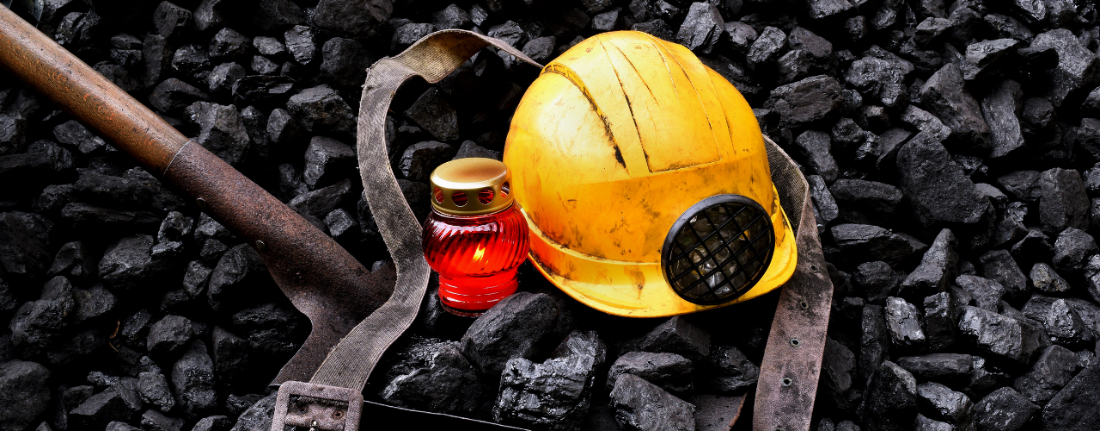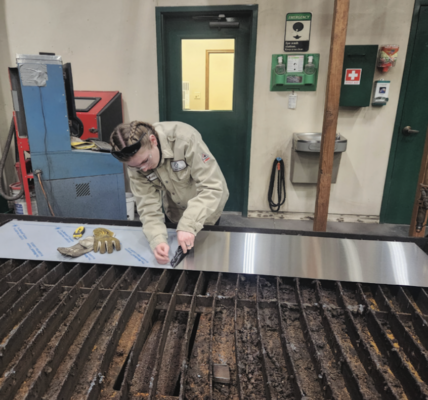By Daniel Bendtsen
Laramie Boomerang
Via Wyoming News Exchange
LARAMIE — During a discussion with the University of Wyoming’s Board of Trustees on Thursday, Gov. Mark Gordon said the university should tap its research capabilities, especially those at the School of Energy Resources, for carbon sequestration and become a leader in combating climate change.
“Wyoming has the solutions for our climate,” he said. “We can take our coal products and we can make them part of the solutions. This a point I keep trying to make to my colleagues on the West Coast, colleagues like Gov. Jay Inslee. If you push as hard as you can to put a 100 percent renewable platform on this planet, you have done nothing to eliminate carbon dioxide in the atmosphere. We in Wyoming have the schools, the research and the ability to move a process forward that can keep our coal mines essential to our electric grid, and at the same time solve our climate solution. I would love to see the University of Wyoming take the stage, front and center on that.”
Gordon discussed ways he’s already tapped the School of Energy Resources’ expertise to improve the state’s finances and praised the school for the ways it’s already attracted global eminence. He said the school’s faculty, and other UW faculty, played a key role in his restructuring of the state’s investment program that led to investments in Abu Dhabi, Kuwait and Singapore.
“The School of Energy Resource is something that’s given us the opportunity to have global visitors come here,” Gordon said. “Early in my career as a treasurer, I was able to bring sovereign funds from the Wyoming world using the School of Energy Resources and the business school and various economists here at the University of Wyoming to put together a comprehensive program on the very thing that we’re facing now: How to use sovereign funds that are driven by commodities to engage in transitional world and how to invest in countries and states to move our economies forward.”
Likewise, Gordon said UW needs to transition to create a more “nimble workforce” that allows Wyoming’s natural resource economy to “diversity beyond just extractive industries and into value-added industries.”
Now is the time, Gordon said, for Wyoming to build on the “legacy of being the first to define carbon sequestration, the first to put the legal framework in place and the first to really look at what kinds of assets do we have that we can retool to not just slow down carbon being released into our atmosphere, but to actually remove it from the atmosphere.”
“I think that with the University of Wyoming’s School of Energy Resources’ ability to take the infrastructure that we have in place and the richness of our natural resources, we have the opportunity to guide the world forward,” Gordon said.
Shortly after taking office, Gordon requested the Legislature appropriate $10 million to the School of Energy Resources “for the purpose of constructing a 5-megawatt equivalent pilot project utilizing advanced coal-based generation technology that captures at least 75 percent of carbon emissions.”
The Legislature reduced the proposed funding to $5 million, with a requirement for matching grant funding to be sought.
Gordon’s carbon-focused comments mirror those being made by Mark Northam, the dean of the School of Energy Resources, who said Monday there are carbon engineering projects the school could take on that would cost $34.8 million.
Northam is currently seeking $8.8 million to evaluate and demonstrate “UW-proven technologies.”
The School of Energy Resources is also seeking $26 million to evaluate and demonstrate “third-party technologies solutions on Wyoming coal.”
$18.7 million of that was been discussed with the board of trustees as matching funds for flameless pressurized oxy-combustion technology, a program currently under consideration for approximately $100 million in funding from the Department of Education. That program could also compete for $5 million from the Legislature for the design and construction a pilot plant for the project. The $26 million request also includes $7 million in matching funds for private grants.
“Clearly, requesting nearly $35 million from the state budget is going to be a very difficult task,” Northam wrote in a report to the board. “We intend to refine the amounts needed in the biennium, to explore other options for funding, and to work closely with the Joint Minerals, Business and Economic Development Committee over the rest of this year to build a strong justification for this funding.”
Northam also discussed the need this week for a new focus on renewable energy within the school, noting that enrollment in the Energy Resource Management and Development program has declined by about a third.
“We recognize that a drive of that decline is that young people are not nearly as excited about careers in oil and gas industry as they were in the past,” he said. “Largely because of the stories they see about the Green New Deal and other climate change legislation that is really putting pressure on the oil and gas industry.”
At the school’s budget hearing on Monday with the trustees, Northam said his school is on the cusp of a major, inevitable evolution.
He said the degree programming needs to be rebranded to focus on “the promise of jobs in renewable sectors and a wide variety of other energy scenarios.”
One of the school’s big focuses, he said, now needs to be on “energy transition” so that Wyoming continues to be a leader in the energy industry.
“Energy transition is extremely complex,” he said. “We’re not just going to shut off the fossil energy sector and turn on renewables in the next 10 years. And in fact, it’s going to take us at least 30 years to even come close to accomplishing a major change in the use of fossil energy in the United States.”
In 2018, the Legislature — which appropriates funds for the School of Energy Resources separately from the UW block grant — gave the school a biennial budget of $18.3 million.
Aside from the major projects he’s identified, Northam is hoping the Legislature will increase the school’s base budget to $20.1 million for the 2021-2022 fiscal year so that the school can address its own challenges and the state’s economic changes.
Northam wants $150,000 annually so that an academic director can be hired “to reinvigorate enrollment and to work with academic departments to ensure continued delivery of required course, or substitution of new ones, and to coordinate the efforts of SER faculty in their contributions to SER’s mission.”
Northam also said the school’s new Energy Policy Analysis Program, which will seek to “inform, educate and develop pragmatic and effective energy solutions for Wyoming policymakers,” will be established in the upcoming academic year and will require $250,000-$500,000 in annual increases for the school.
The school has trimmed its budget for the 2020 fiscal year to cut out $700,000 in marketing, but Northam has asked for $500,000 more annually to “reinvigorate Centers of Excellence to align with the needs of the state in the coming period of energy transition and to rebuild our outreach program.”
In addition to the School of Energy Resources’ structural evolution, Northam predicted that the school will be significantly defined by major partnerships with oil and gas companies in coming years.
Those projects, however, would require $7 million during the upcoming biennium for matching funds, with another $10 million in matching funds required later on.
The school has already secured a $12 million grant from the Hess Corporation. That grant requires a $5 million match from the state.
In February, Northam and UW President Laurie Nichols made a trip to Saudi Arabia and Abu Dhabi to make a pitch for funding.
While the funding from the Arab oil companies isn’t final, Northam wrote in a memo to the board that the funding is “highly likely.”
The School of Energy Resources has a potential $24 million commitment from Saudi Aramc with a required state match of $10 million.
The school has a potential $5 million from the Abu Dhabi National Oil Company with a required state match of $2 million.
During the current academic year, the School of Energy Resources has had a number of accomplishments regarding carbon engineering. The school has earned patent awards for research conducted by the school’s faculty and staff regarding a coal refinery and coal conversion.
“We also had a successful field test of a soil amendment made from coal,” Northam said.
Clean Coal Technologies has also committed $1 million to the school for commercial coal beneficiation technology.
The school has also hired Robert Bradley, a professor from Cambridge University, to lead the carbon engineering research into the future as Richard Horner nears retirement.
The school also continue on its major CarbonSAFE program in Gillette.





